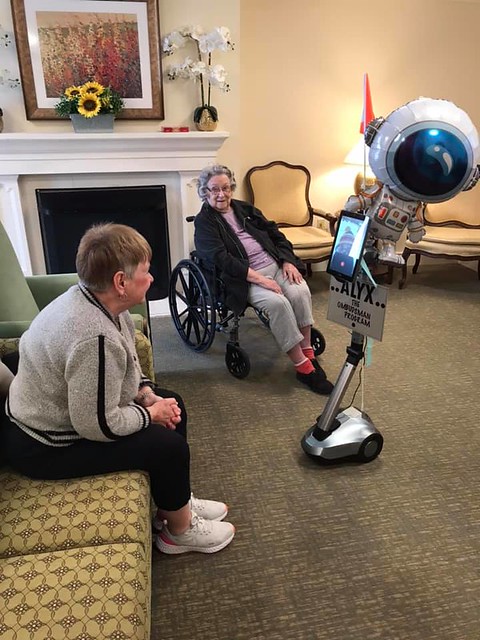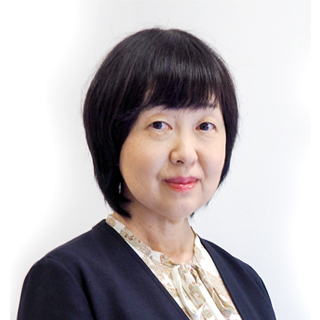Researchers assess factors influencing willingness to use home-care robots among caregivers and older adults in Japan, Ireland, and Finland
The rapidly increasing aging population will lead to a shortage of care providers in the future. While robotic technologies are a potential alternative, their widespread use is limited by poor acceptance. In a new study, researchers from Chiba University have examined a user-centric approach to understand the factors influencing user willingness among caregivers and recipients in Japan, Ireland, and Finland. Users’ perspectives can aid the development of home-care robots with better acceptance.

Image title: Empowering older adults using home-care robots
Image caption: Home-care robots hold significant potential in empowering older adults. Researchers from Chiba University, Japan, assess factors influencing the willingness to use home-care robots among caregivers and older adults in Japan, Ireland, and Finland.
Image credit: Governor Tom Wolf from flicker https://www.flickr.com/photos/governortomwolf/51038559263/
Image license: CC BY 2.0
Usage restrictions: Cannot be reused without permission
Advances in medicine have led to an increase in human longevity. Estimates suggest that by 2030, one in every six individuals globally will be aged over 60 years. This rapid increase in the aging population implies a larger number of aged individuals requiring care. Family members and professional caregivers may not be able to meet this increasing demand. Furthermore, reports suggest a significant shortage of workforce, including nurses, in several developed countries, underscoring the need for additional strategies that cater to the needs of older adults.
Simple and effective technologies such as robots can bridge this gap and help provide the care needed for older individuals to age in the comfort of their homes. However, despite their significant potential, social acceptance of assistive home-care robots in aging societies remains an issue. Further, their widespread use is impeded by challenges in developing robots that can cater to the specific needs of older individuals requiring long-term care across different countries, given the cultural, ethical, and financial differences.
In a new study, researchers from Chiba University, Japan, sought to elucidate the factors that affect users’ willingness to use home-care robots. Previous studies have shown that public involvement in research has a positive impact on the study design and patient engagement. Building on this, the researchers examined a user-centric approach that involves potential users in the research and development process of home-care robots. This approach takes into consideration real-life expectations and problems faced by users.
Giving further insight into their work published in Scientific Reports, on November 12, 2024, Professor Sayuri Suwa, the corresponding author of the article, says, “In countries where the population is aging, the use of home-care robots will enable many people to achieve ‘aging in place.’ Each country has its own unique history, culture, and legal system, so we wanted to clarify how home-care robots could be developed and implemented in a way that respects these differences.” This research was actively co-authored by Dr. Hiroo Ide from the Institute for Future Initiatives, The University of Tokyo; Dr. Yumi Akuta from the Division of Nursing, Faculty of Healthcare, Tokyo Healthcare University; Dr. Naonori Kodate from the UCD School of Social Policy, Social Work and Social Justice, University College Dublin; Dr. Jaakko Hallila from Seinäjoki University of Applied Sciences; and Dr. Wenwei Yu from the Center for Frontier Medical Engineering, Chiba University.
The team conducted a questionnaire-based survey of care recipients and caregivers across Japan, Ireland, and Finland. The questionnaire assessed four different aspects of users’ willingness, namely – familiarity with robots, important points about home-care robots, functions expected from home-care robots, and ethically acceptable uses, through 48 different items. The researchers analyzed the responses of 525 Japanese, 163 Irish, and 170 Finnish participants for common and distinct factors influencing their willingness to use robots.
The analysis revealed that “willingness to participate in research and development,” “interest in robot-related news,” and “having a positive impression of robots” were common factors among respondents from the three countries. On the other hand, “convenience” in Japan, “notifying family members and support personnel when an unexpected change occurs in an older person” in Ireland, and “design” in Finland were found to be distinct factors influencing the use of robots.
Additionally, the study highlights how historic, cultural, and demographic variables across the countries influence the implementation of home-care robots. In Japan, robot development is being encouraged by the government, industry, and academia, with a general optimism towards their application. While robot development is slightly behind in Ireland, its use for older adults is being increasingly recognized, and artificial intelligence and robotics are being applied in health and social care. The Finnish respondents’ choice of ‘design’ is in line with Finnish design, which is widely known worldwide, suggesting that it is important in robot manufacturing.
Overall, the study highlights the importance of user participation and their perspective in the development of home-care technology. Home-care robots hold significant potential in empowering older adults. “Developing home-care robots in collaboration with potential users, such as older people and care providers, will foster better product acceptance in the future. This is beneficial not only for validating the home-care products under development but also for truly expanding the use of home-care robots. Ultimately, this would lead to greater well-being for users,” Prof. Suwa concludes.
With the right blend of innovation, collaboration, and cultural sensitivity, home-care robots could soon transform the dream of ‘aging in place’ into a global reality!
About Professor Sayuri Suwa
Professor Sayuri Suwa is a faculty at the Department of Community Health Nursing, Chiba University, Japan. Her research focuses on dementia care, gerontological nursing, and home care. Prof. Suwa’s work involves developing care technologies for people with dementia, ethics for the care of older people, and the development and social implementation of home care technologies. She is actively involved in discussions on the decision-making concerning the use of AI and care robots, as well as ethical considerations related to personal information and privacy protection. She aims to ensure the delivery of personalized care tailored to individual needs.
Funding:
The Pfizer Health Research Foundation, International Joint Research, and IAAR Next-generation Research of Social Value Creation Research Support Program, Chiba University
Reference:
Title of original paper: A comparative study to elucidate factors explaining willingness to use home-care robots in Japan, Ireland, and Finland
Authors: Hiroo Ide 1,11, Sayuri Suwa2,11, Yumi Akuta3, Naonori Kodate4, Mayuko Tsujimura5, Mina Ishimaru2, Atsuko Shimamura6, Helli Kitinoja7, Sarah Donnelly4, Jaakko Hallila7, Marika Toivonen7, Camilla Bergman-Kärpijoki8, Erika Takahashi9, and Wenwei Yu10
Affiliations:
- Institute for Future Initiatives, The University of Tokyo, Hongo 7-3-1, Bunkyo-ku, Tokyo, Japan
- Department of Community Health Nursing, Division of Innovative Nursing for Life Course, Graduate School of Nursing, Chiba University, Japan
- Division of Nursing, Faculty of Healthcare, Tokyo Healthcare University, Japan
- UCD School of Social Policy, Social Work and Social Justice, University College Dublin, Ireland
- Division of Visiting Nursing, School of Nursing, Shiga University of Medical Science, Japan
- Division of Community Health Nursing, Department of Nursing, Faculty of Health Science, Toho University, Japan
- Seinäjoki University of Applied Sciences, Finland
- Humana, Finland
- Graduate School of Humanities, Chiba University, Japan.
- Center for Frontier Medical Engineering, Chiba University, Japan
- Hiroo Ide and Sayuri Suwa authors share the first authorship of this paper
Journal: Scientific Reports
DOI: 10.1038/s41598-024-79414-y
Contact: Professor. Sayuri Suwa
Graduate School of Nursing, Chiba University
Email: suwa-sayuri@faculty.chiba-u.jp
Public Relations Office, Chiba University
Address: 1-33 Yayoi, Inage, Chiba 263-8522 JAPAN
Email: koho-press@chiba-u.jp
Tel: +81-43-290-2018
Recommend
-

Viewing a Diverse World through the Lens of Agriculture and Food: Enriching Global SDGs Education with Insights from Extensive Overseas Field Research
2023.08.31
-

Creating a Captivating Play Area for Kids: Inspiring Creativity through Innovative Play Equipment Design
2024.01.17
-

Designing a Comfortable Living: A Kampo Clinic that Simulates the Five Senses
2024.01.26


